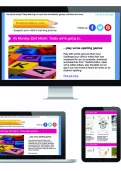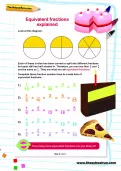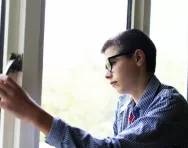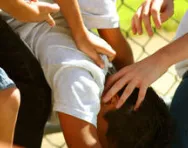Important update from TheSchoolRun
For the past 13 years, TheSchoolRun has been run by a small team of mums working from home, dedicated to providing quality educational resources to primary school parents. Unfortunately, rising supplier costs and falling revenue have made it impossible for us to continue operating, and we’ve had to make the difficult decision to close. The good news: We’ve arranged for another educational provider to take over many of our resources. These will be hosted on a new portal, where the content will be updated and expanded to support your child’s learning.
What this means for subscribers:
- Your subscription is still active, and for now, you can keep using the website as normal — just log in with your usual details to access all our articles and resources*.
- In a few months, all resources will move to the new portal. You’ll continue to have access there until your subscription ends. We’ll send you full details nearer the time.
- As a thank you for your support, we’ll also be sending you 16 primary school eBooks (worth £108.84) to download and keep.
A few changes to be aware of:
- The Learning Journey weekly email has ended, but your child’s plan will still be updated on your dashboard each Monday. Just log in to see the recommended worksheets.
- The 11+ weekly emails have now ended. We sent you all the remaining emails in the series at the end of March — please check your inbox (and spam folder) if you haven’t seen them. You can also follow the full programme here: 11+ Learning Journey.
If you have any questions, please contact us at [email protected]. Thank you for being part of our journey it’s been a privilege to support your family’s learning.
*If you need to reset your password, it will still work as usual. Please check your spam folder if the reset email doesn’t appear in your inbox.
How your child develops in Key Stage 2

The move from infants to juniors is the start of a new era of independence for your child. Their life revolves around their friends and out-of-school activities, with you as taxi driver, and with the teenage years beckoning, they're likely to be growing more mature by the day.
What’s going on in there?
Your Year 3 child is:
- keen to have more responsibility and independence.
- concerned about how others perceive them.
- drawn to same-sex children in the playground.
- forgetful and easily distracted.
- likely to have strong feelings – positive or negative – towards their teacher.


Start your child on a learning programme today!
- Weekly English, maths & science worksheets direct to your inbox
- Follows the National Curriculum
- Keeps your child's learning on track
Your Year 4 child is:
- good at making new friendships, particularly with the same sex.
- more secretive.
- keen to participate in extracurricular groups and activities.
- generally laidback, affectionate, helpful and considerate.
- sometimes silly, giggly, rude and demanding.
Your Year 5 child is:
- spending most of their time with same-sex friends.
- desiring more independence and pushing boundaries.
- acquiring a conscience, and obsessed with fairness.
- usually reliable, truthful and trustworthy.
- concerned about being accepted by others.
Your Year 6 child is:
- affectionate towards you.
- selective about friendships, with one or two best friends.
- developing a strong moral code.
- increasingly interested in fashion, music and TV.
- keen to be given privacy.
Potential pressure points
“Many of the pressures in Key Stage 2 are social issues,” says chartered educational psychologist Julia Busch Hansen. “They’re more aware of things like money, fashion and what other people think of them.” This increases in years 5 and 6, where many of the girls are starting puberty and maturing at different rates.
School can be a source of pressure, too, both inside the classroom and out. Teasing and bullying may become a problem, and children are also more conscious of how they perform academically in relation to others. And in year 6, they may be feeling insecure about the big move to secondary school.
Warning signs to watch out for
It’s common for children of this age to become withdrawn, which can make it difficult to tell if they’re under pressure. “It’s important to make yourself available to support your child through changes in routine and changes in what is expected of them,” advises chartered educational psychologist and educational adviser Susan Brooks. Look out in particular for signs of stress like irrational fears, sleep problems, body image issues such as wanting to diet, mood swings, tearfulness or anger.








